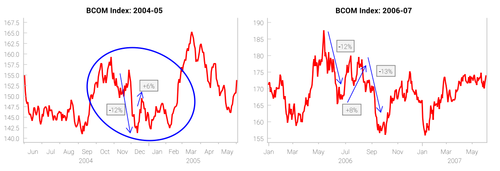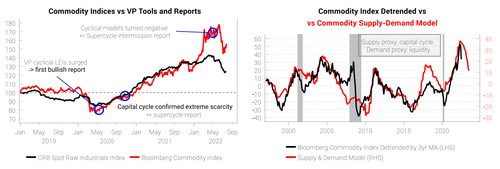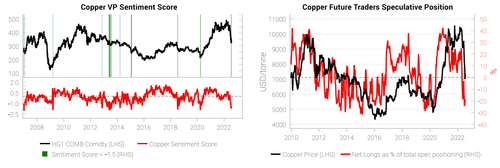

The “major questions” doctrine is a rule of statutory interpretation that requires Congress to “speak clearly when authorizing an [executive branch] agency to exercise powers of “vast ‘economic and political significance.'” If such a broad delegation of power isn’t clear, the the doctrine requires courts to rule against the executive’s claims that it has the authority in question.
For a long time, the major questions doctrine was a relatively obscure rule of interest mainly to experts in statutory interpretation, and lawyers litigating cases where it might come up. Only occasionally would it affect the outcome of a prominent case. But over the last year, the Supreme Court has relied on it in three major cases: the eviction moratorium decision, the OSHA large-employer vaccine mandate case, and West Virginia v. EPA. This has made the rule a focus of controversy, with critics arguing that it is a flawed doctrine misused by the conservative justices on the Supreme Court.
At the Originalism Blog (to which both are regular contributors), prominent originalist legal scholars Mike Ramsey and Mike Rappaport recently debated the issue of whether the major questions doctrine is consistent with constitutional originalism. Ramsey believes that it is, while Rappaport is skeptical.
Here’s Ramsey:
I was initially skeptical of the major questions doctrine (MQD), as deployed by the Supreme Court in West Virginia v. EPA – basically for the reasons expressed by Chad Squitieri, Tom Merrill and Jonathan Adler. But with everyone ganging up on the MQD, my contrarian instinct pushes me the other way. So here is a tentative defense.
First, I assume that the Constitution’s original meaning contains some reasonably strong version of the nondelegation doctrine, that is, that Congress cannot delegate important legislative matters to the President (or administrative agencies) as a result of Article I, Section 1’s vesting of “all legislative Powers” in Congress…..
Second, I assume that the line between permissible and impermissible delegations is so difficult to define and apply that, except in extreme cases, the nondelegation rule is basically nonjusticiable, as held by the Supreme Court (per Justice Scalia) in the Whitman case… I’m not sure that’s right, but I’m assuming it for purposes of the argument.
Third, I assume that Congress will often enact broad statutes in which the extent of the intended delegation is uncertain. (I’m pretty confident that’s true).
Now for the argument:
The Court has a common and longstanding practice of developing clear statement rules (whether actually called by that name or not), by which the Court avoids an expansive reading of a statute unless Congress is clear in directing the expansive reading. For example, a clear statement is needed before a statute is read to interfere with a state’s internal governance (Gregory v. Ashcroft), to apply to purely local activity (Bond v. US), to apply extraterritorially (Morrison v. National Australia Bank), or to impose criminal penalties (the rule of lenity).
Probably the earliest version in US federal law is the “Charming Betsy” rule, requiring a clear statement before a statute is read to violate international law. (The rule takes its name from Chief Justice Marshall’s decision in Murray v. The Charming Betsy(1804)…). Specifically Marshall wrote in Charming Betsy: “an act of Congress ought never to be construed to violate the law of nations if any other possible construction remains.”
I’m not sure that’s good enough for a strict textualist, but as an originalist matter that’s a pretty strong practice. (Also, for what it’s worth, Justice Scalia endorsed most or all of the modern clear statement rules).
In my view, these rules aren’t really about finding the true meaning of the statutory text. I doubt, for example, we can assume that, absent a clear statement, Congress doesn’t want to violate international law, interfere with states’ internal governance or create criminal penalties. Rather, these are rules of judicial restraint, avoiding a broad reading of a statute where the meaning is uncertain and there are severe costs to the court erroneously reading the statute broadly…..
Thus, the fact that the MQD applies a clear statement rule instead of applying close textual analysis isn’t novel or contrary to originalism. To be consistent with historical practice, though, this particular clear statement rule needs to protect against some substantial negative effect of overreading a statute. For the MQD, I think that argument can be made, if one accepts the assumptions posited at the outset of this post. Nondelegation is an important constitutional value, assuring that the people’s representatives in Congress make legislative decisions through a deliberative and accountable process. But since the Court can’t enforce nondelegation directly and delegating statutes are often ambiguous as to their scope, there’s a substantial risk courts will err in reading statutes too broadly, allowing too much delegation to the President or the agencies.
Ramsey’s argument here is similar to that advanced by Supreme Court Justice Neil Gorsuch, who has also argued in several opinions that the major questions doctrine is best understood as a tool for enforcing nondelegation. For example, in his concurring opinion in Gundy v. United States (2019), Gorsuch notes that “[a]lthough it is nominally a canon of statutory construction, we apply the major questions doctrine in service of the
constitutional rule that Congress may not divest itself of its legislative power by transferring that power to an executive agency.”
Here’s Rappaport’s response:
Before discussing Mike [Ramsey’s] view, let me state my basic objection to the MQD: It neither enforces the Constitution nor applies ordinary methods of statutory interpretation. Thus, it seems like a made up interpretive method for achieving a change in the law that the majority desires.
Mike’s defense is based on his view that “The Court has a common and longstanding practice of developing clear statement rules.” Even assuming that is true, I do not think that a longstanding practice establishes that something is originalist. For quite some time, at least until recent terms, the Supreme Court has been interpreting the Constitution and even statutes from an nonoriginalist perspective, but that does not make such nonoriginalism originalist. That Justice O’Connor announced a federalism canon in 1991 (or the Court applied similar ones in other cases from that time period) hardly provides support for the originalist bona fides of the canon.
Mike claims that this practice goes back to at least Chief Justice Marshall in the Charming Betsy (1804) and Talbott v. Seemen (1801), which required a clear statement before a statute is read to violate international law. But I am skeptical. Marshall may have applied the rule but did he “develop” it as Mike claims? At that time, the law often employed interpretive rules that sought to make different bodies of law cohere with one another. For example, statutes were interpreted in accord with the common law. I would be surprised if such a rule did not also apply to statutes and international law.
This is a key point. There is a strong argument for applying existing interpretive rules to statutes enacted in the shadow of such rules. This is original methods for statutory interpretation. It is quite another thing to make up interpretive rules after the enactment. That is nonoriginalism.
Another justification for the Charming Betsy rule is that it accords with the presumed intent of the Congress. That justification won’t work for the MQD, since many of these statutes were passed during a period of broad delegation to agencies, when Congress appeared to desire broad delegations and certainly understood delegations would be read in that way. Mike doubts that the Charming Betsy rule can be justified as the presumed intent of Congress. But I am not so sure of that either. While Mike may be right that the present day Congress may not care so much about modern international law, I am less certain that the early Congress would have been willing to ignore international law when the U.S. was a much weaker nation and much more beholden to international law protections….
To be frank, I wish the MQD could be justified. It would certainly make things easier from the perspective of limiting delegations. But “wishing does not make it so.”
Both Mikes make good points. But I largely agree with Ramsey. Indeed, I would go further. Even if nondelegation is justiciable, at least in some cases, the major questions doctrine can be justified as an additional tool for enforcing it, in situations where direct enforcement is infeasible for some reason (either because it is intrinsically impossible, or because judges just aren’t willing to do it). In this way, MQD, like other “clear statement” rules can be seen as a second-best tool for enforcing constitutional constraints on government power that, in an ideal world, would get stronger protection.
I think Rappaport fails to effectively respond to this rationale for MQD. Even if it is not the ideal rule, it may be better than the available alternatives in a world where nondelegation is inadequately enforced.
I would add that, while both Mikes implicitly assume that constitutional originalists must also apply originalist principles to statutory interpretation, I am not convinced that is necessarily true. It may be so for those I refer to as “intrinsic originalists,” who believe that originalism is inherently the only legitimate method of legal interpretation. But this is not true for what I call “instrumental originalists” – those whose support for originalism is based on the view that originalism leads to better consequences than other methodologies would. An instrumental originalist might conclude that, while constitutional originalism leads to better consequences than other constitutional theories, statutory originalism isn’t necessarily superior in the same way to all of its rivals.
Rappaport (as described in his excellent book Originalism and the Good Constitution, coauthored, with John McGinnis) is an instrumental originalist. So too am I. That means we cannot presumptively reject nonoroginalist methods of statutory interpretation. For us, it is possible that MQD can be justified even if it is not originalist. That’s especially true if it is a useful tool for enforcing constitutional rules that do have an originalist justification.
As Ramsey recognizes, his rationale for MQD (and Justice Gorsuch’s and mine!) only works if nondelegation rules impose genuine limitations on congressional power to transfer authority to the executive. If the Constitution imposes few or no constraints on delegation, then MQD cannot be justified as a tool for enforcing those (by assumption, nonexistent) restrictions.
The extent to which there are constitutional limits to congressional delegations of power to the executive is a much-disputed issue. Though I generally think there are some significant limits, I won’t try to defend that position here.
Even if MQD is a sound rule, that doesn’t necessarily mean the Court applied it correctly in any given case. I have previously argued that it did so justifiably in the eviction moratorium and vaccine mandate rulings. West Virginia v. EPA strikes me as an at least somewhat closer case.
The post Originalism and the "Major Questions" Doctrine appeared first on Reason.com.
from Latest https://ift.tt/6Q79vWh
via IFTTT












